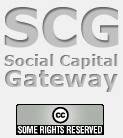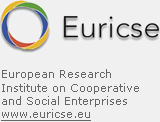 The Economic Research Forum (ERF) is pleased to announce a call for proposals, supported by the Global Development Network (GDN) under the theme of “The Economics of Informality in MENA”. ERF and non-ERF affiliates from the region are invited to submit proposals for original research.
The Economic Research Forum (ERF) is pleased to announce a call for proposals, supported by the Global Development Network (GDN) under the theme of “The Economics of Informality in MENA”. ERF and non-ERF affiliates from the region are invited to submit proposals for original research.
Please send your proposal, according to the terms outlined below to Ms. Eman El Hadary [email protected] copied to Ms. Ramage Nada [email protected] by September 25, 2013.
Themes and sub-themes
The recent Arab Awakening has shown that the high growth rates experienced by many countries in the region over the past decade were associated with economic exclusion. One such measure of exclusion is informality, of both workers and firms which fail to enter or survive in the formal economic sphere. And while the informal sector enjoys economic dynamism, entry and exit flexibility and adjustment to demand changes, it is characterized by low job quality, less job security, lower incomes and absence of access to finance and social benefits, all key ingredients to decent work.
Nevertheless, recent evidence by the World Bank shows that a typical MENA country produces one-third of its GDP and employs 67 percent of its labor force informally. Moreover, MENA has the highest share of firms that start informal (25 percent) and the longest operating period without formalization (4 years) among developing regions. Moreover, there is evidence of an expansion in informality over the past few years.
In this context, it is important to understand the trends, causes and dynamics (entry, exit) of informality in countries of the ERF region. Hence, authors are invited to submit proposals to address the following, but by no means exclusively, sub-themes:
1. Trends, characteristics and drivers (including the institutional and regulatory determinants) of informality during economic booms and transitions.
2. Benefits and costs of informality.
3. Informality implications on poverty and welfare.
4. The transition of firms from and to the informal sector.
5. Informality and firm-level productivity and performance.
6. Exploring the distinction between employment and firm informality.
7. Informality, entrepreneurship and innovation.
Authors are encouraged to use the micro data sets (whether labor force or household surveys) available under the Open Access Micro Data Initiative (OAMDI). To do so, please visit http://www.erf.org.eg/cms.php?id=events_details&news_id=173
Guidelines for proposals
Authors should submit a proposal of a maximum length of twenty pages. It should be structured to contain eight sections in the following format. ERF reserves the right to exclude proposals that are not consistent with these guidelines.
1. Statement of the research problem: A clear and concise description of the nature and importance of the proposed research; its scope and boundaries; its general context; and objectives with explicit reference to feasibility and policy relevance.
2. Literature Review: A selective and analytical review of the relevant literature, with a view to both demonstrating knowledge of past theoretical and empirical work, as well as identifying the knowledge gap that the proposed research is intended to address.
3. Conceptual Framework: A clear statement of the theoretical approach that will guide the research. This section should also justify the selection of the proposed approach as compared to alternative approaches. It should serve as the introduction to the section on methodology by elaborating on the set of specific, identifiable and concrete questions for which the proposed research is intended to provide answers.
4. Research Methodology: An elaboration of the research methods to be employed and why they are best suited to answer the research questions. The section should also indicate the nature of the information required and the data collection techniques, whether primary or secondary or a combination of the two. Finally, it should explain how the information will be analyzed and interpreted using quantitative and/or qualitative methods.
5. Publications and Dissemination Strategy: This section should describe the research products that will be delivered at various stages of the research process. It should also outline a strategy on how these products will be disseminated to different stakeholders (working papers, edited volumes, workshops, etc.)
6. Time Frame: A clear plan of the timing of all stages of the research project as well as any dissemination activities (including workshops), taking into account that the time frame for each project must range between 6 and 18 months. The timetable must specify due dates of draft and final papers as well as any planned events.
7. Budget: Research costs should be sufficiently detailed to show research time (and associated costs) by various researchers, including the principal investigator. Other budget items may include travel, if necessary, research assistance, data collection, office supplies and photocopying. If events are planned, separate costing is required. 8. References.
Eligibility
The following eligibility criteria will be applied:
Researchers should have expertise in the topic being researched.
All the sub-grantees should be only from the developing or transition countries.
Researchers from disciplines other than in economics may apply.
Selection criteria
All proposals will be evaluated by a refereeing committee on the basis of the following criteria:
The value added from the project in terms of contributing to existing knowledge.
The methodological soundness, be it econometric or in-depth case studies.
The policy relevance of the findings.
The effectiveness of the dissemination strategy.
The extent to which the project involves a capacity building component.
PLEASE FORWARD YOUR SUBMISSION TOGETHER WITH:
Authors’ CVs
Two published papers
The proposal identification sheet
To download the application please click here.
Important dates
Submission of proposals deadline 25th of September 2013
Announcement of winning proposals 25th of October 2013
Budget revisions and contracting by the first week of December
Submission of draft papers 25th of March 2014
Workshop for discussing draft papers April 2013 (TBD)
Submission of final papers May 2013








